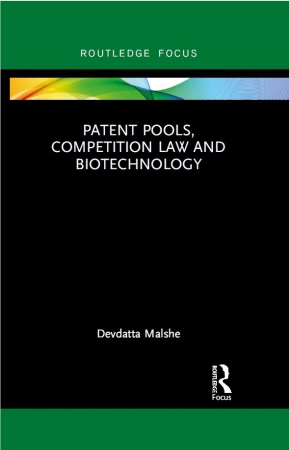
Exploring the relationship between competition law and technology pools, this book provides general-purpose details of the biotechnology patent pool scheme while discussing historical developments, approaches of the US Department of Justice, Federal Trade Commission, and the European Union Competition Commission via EU regulations. In addition to these regulatory approaches and evolution in concept and theory of technology pools, this book illustrates relationship issues including tying arrangements and essential facility consideration vis-à-vis technology pools. It analyzes the modalities of forming such pools in the area of biotechnology, specifically illustrating that the formation of technology pools is possible and can be safely undertaken, and proposes a viable solution and structure. Patent pools in the biotechnology industry will pave the way towards open collaborative research, reducing patent thickets. Formation of such pools will increase access to various technology and patents otherwise out of bounds, resulting in a reduction of licensing costs and a spur in the development of new solutions. Most importantly, such pools will reduce the frequency of patent toll gates, making the entire spectrum of research interesting from the perspective of researchers as well as investors. This book will be an aid to researchers studying intellectual property, patents, and biotechnology, as well as to interest groups including funding agencies, venture funds, angel investors, and proponents of the open-source movement.
